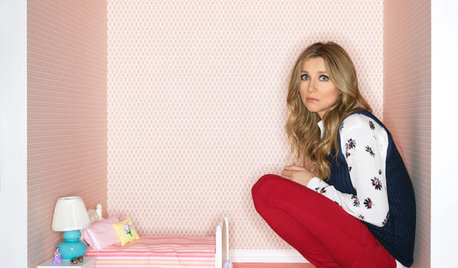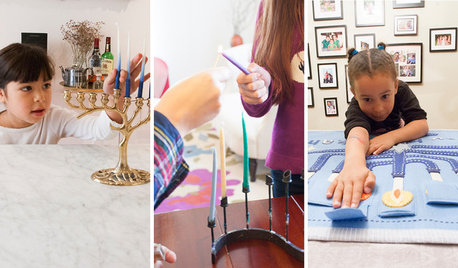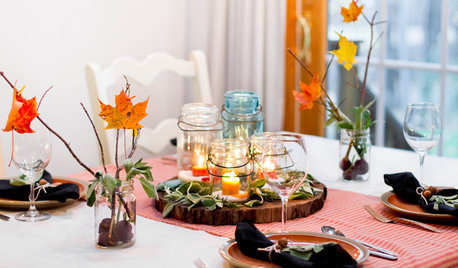What do I need to know about a Jewish Funeral
rob333 (zone 7b)
15 years ago
Related Stories

HISTORIC HOMESMust-Know Modern Homes: Mies van der Rohe's Villa Tugendhat
Visit a 1930 masterpiece of modern design in the Czech Republic, newly restored and open to the public
Full Story
LIFETell Us: Do You Know How to Live With Your Parents?
If you've tried multigenerational living under one roof, we'd love to hear the details
Full Story
LIFE3 Ways to Get Unstuck — About Organizing, Decorating, Whatever
Break out of the do-nothing rut to accomplish your goals, whether at home or in other parts of your life
Full Story
BEDROOMSGuessing Game: What Might Our Bedrooms Say About Us?
For entertainment only; actual accuracy may vary. Always don fun goggles and engage your imagination before playing!
Full Story
EVENTSDesigning Home: Jews and Midcentury Modernism
A new exhibition explores how Jewish architects and designers in postwar America reimagined our homes and everything in them
Full Story
HANUKKAHHow 3 Families Celebrate Hanukkah at Home
See the personalized touches these Northern California families bring to the Jewish Festival of Lights
Full Story
MOST POPULARThe Not Naturally Organized Parent's Guide to the Holidays
This year get real about what you can and cannot handle, and remember the joys of spending time with the ones you love
Full Story
COLORHow to Add Just the Right Amount of Dramatic Black
Done right, black can add punch and personality to just about any room. Here’s how to go over to the dark side in style
Full Story
PETSIncredible Home Catwalks Make for Purr-fectly Happy Felines
Walkways and tunnels custom built to the tune of about $35,000 keep a homeowner’s 18 cats on cloud nine
Full Story
HOUZZ TOURSMy Houzz: Sophisticated, Old-World Charm for a Dallas Rambler
Warm wood tones and secondhand finds shine in this first-time homeowner’s home
Full Story

sylviatexas1
bill_vincent
Related Professionals
Maple Valley Landscape Architects & Landscape Designers · Wheeling Landscape Architects & Landscape Designers · Maple Heights Landscape Architects & Landscape Designers · Eagle Landscape Contractors · Fort Worth Landscape Contractors · Kailua Landscape Contractors · Live Oak Landscape Contractors · Louisville Landscape Contractors · University City Landscape Contractors · Brooklyn Park Decks, Patios & Outdoor Enclosures · Miami Decks, Patios & Outdoor Enclosures · Montgomery County Decks, Patios & Outdoor Enclosures · Saint Louis Park Decks, Patios & Outdoor Enclosures · Converse General Contractors · Austintown General Contractorsdiene
sable_ca
firstkim
rob333 (zone 7b)Original Author
batyabeth
sheila
andie_rathbone
catspaws
greenaphid
Mrobbins
rob333 (zone 7b)Original Author